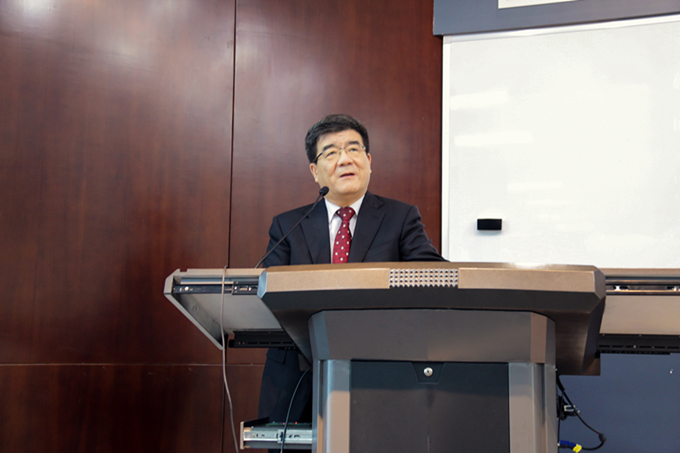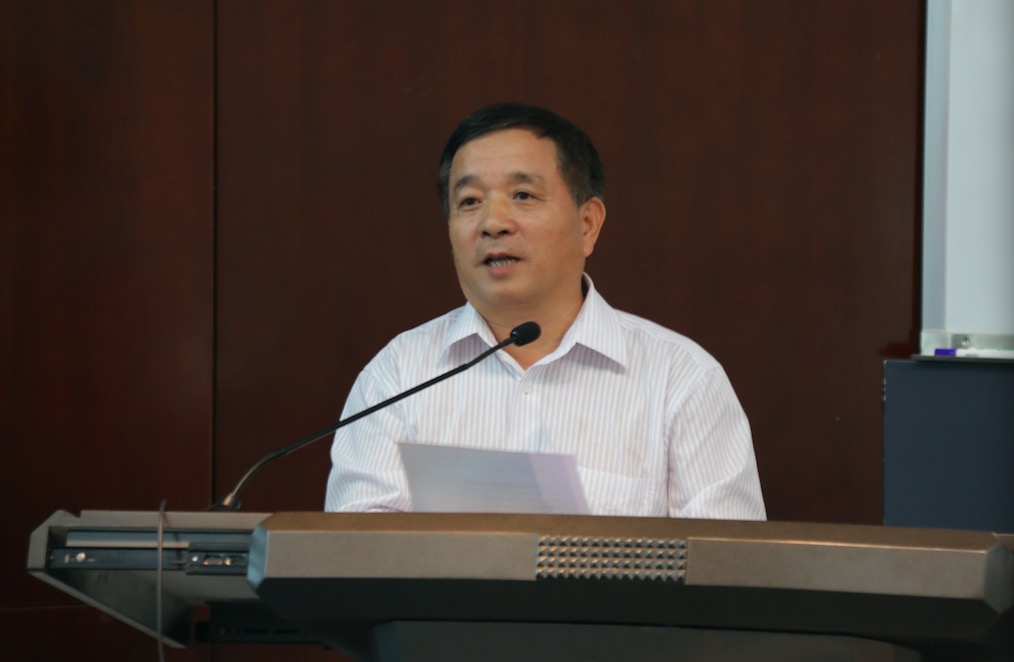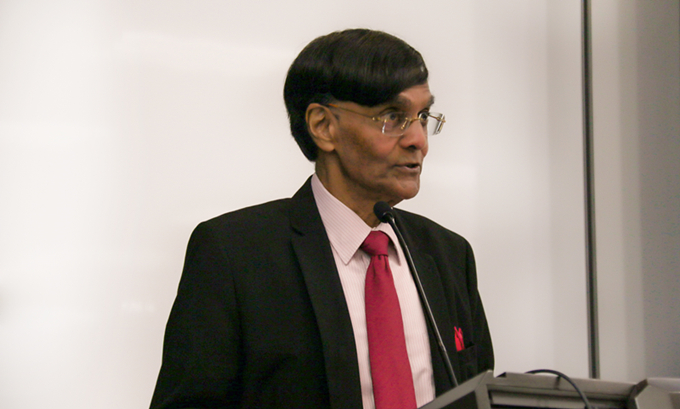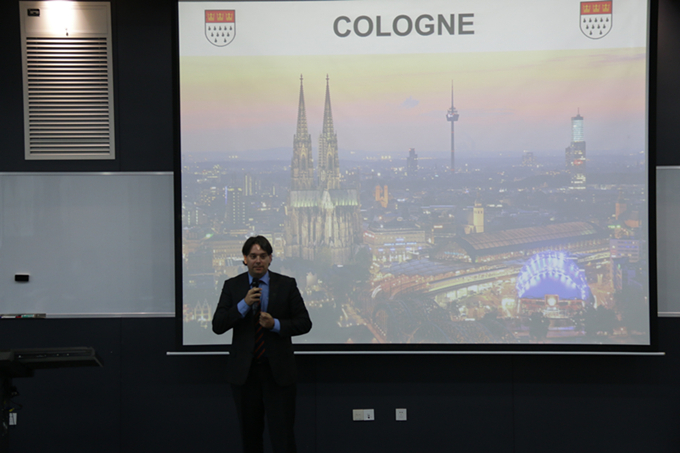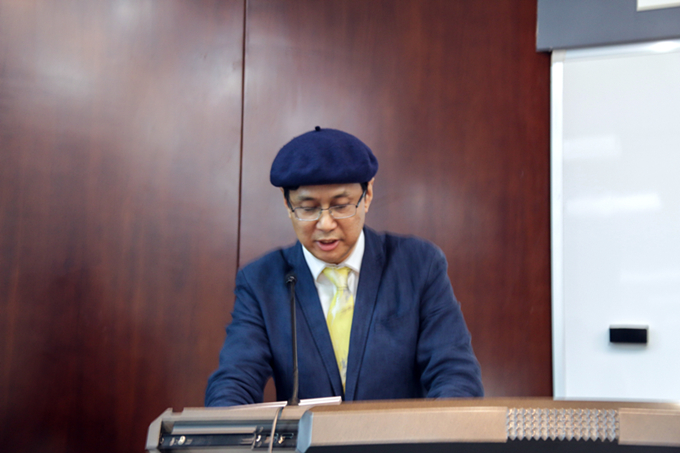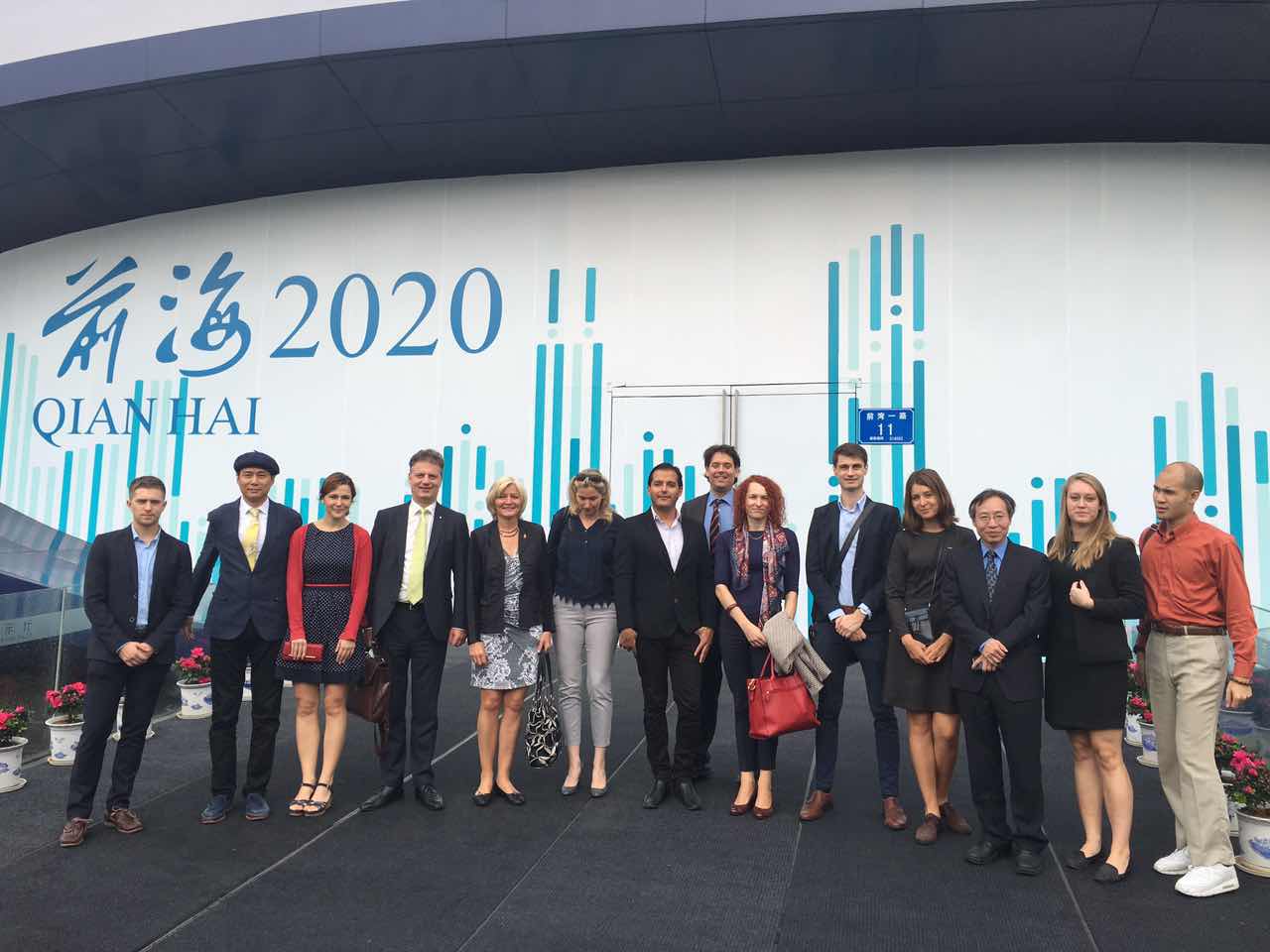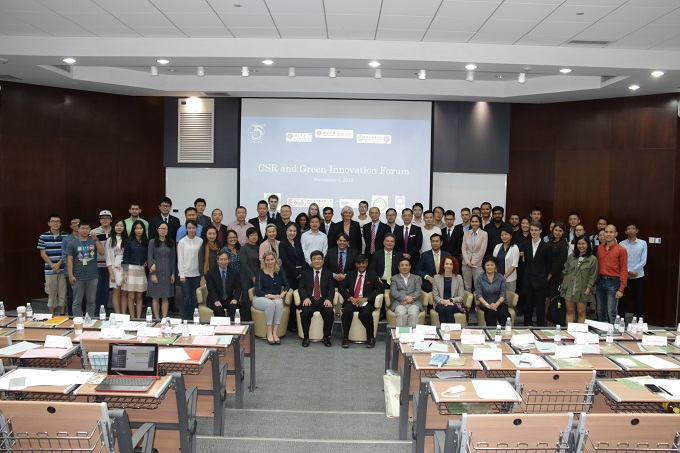The Paris agreement on climate change entered into force on November 4, marking the first time that governments have agreed to legally binding measures to limit rising global temperature. The passage of the accord – the fruit of tortuous international negotiations on combating climate change – was hailed by nations and observers around the world. What practical measures should nations and enterprises take to strike a balance between economic growth and environmental protection? How can green innovation give its full play in this process?
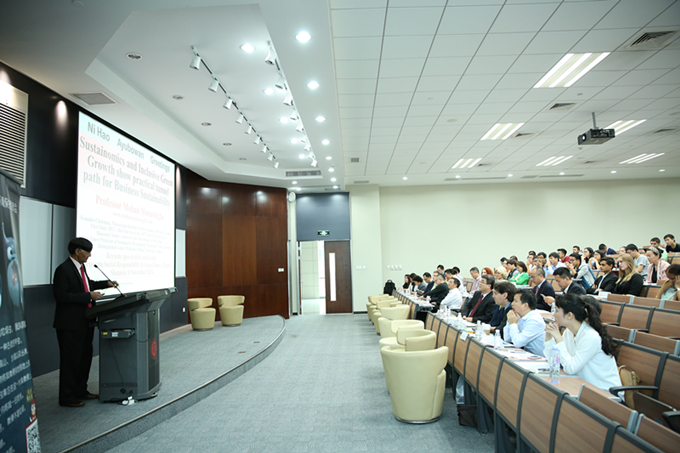
Under such a context, the Corporate Social Responsibility and Green Innovation Forum was held at Peking University HSBC Business School (PHBS) on November 6. Scholars, entrepreneurs and policymakers converged to learn from the eight keynote presentations and engage in open discussions on CSR practice and green innovation. The forum also provided PHBS international students and participants a chance to visit the Qianhai Shenzhen-Hong Kong Youth Innovation and Entrepreneur Hub, an incubator for creative and energetic small companies.
Dean Hai gives opening remarks
The event started with opening remarks delivered by Hai Wen, PHBS dean and vice chairman of Peking University Council. He emphasized the importance of transforming our economy from labor-intensive manufacturing model to knowledge-intensive green economy. “Shenzhen has turned itself from a manufacturing center to China’s most innovative and entrepreneurial city. This forum in Shenzhen will provide us a platform to learn from each other and take an active part in CSR and green innovation.”
PKUSZ Vice Chancellor Bai zhiqiang gives a speech
Bai Zhiqiang, deputy secretary-general of Peking University and Vice Chancellor of Peking University Shenzhen Graduate School also gave a speech. He commented that economic development and green innovation were two important aspects of our times, while this forum could bring scholars, entrepreneurs and policymakers together to brainstorm on those issues. Xu Qigong, vice dean of School of Environment and Energy said in his speech, “We need schools to educate future engineers and business leaders to adopt green innovation and enhance CSR.”
Mohan Munasinghe, vice chair of the United Nations Intergovernmental Panel on Climate Change, presents the plenary report.
Mohan Munasinghe, vice chair of the United Nations Intergovernmental Panel on Climate Change, presented the plenary report, remarking, “If we find the ways to make development sustainable, we can find integrated solutions that may not only solve the climate change problem, but also poverty and other thorny issues.” He shared his insights on the world’s imbalanced consumption pattern, the sustainable development triangle, and the green growth path. He held that sustainable development could be conceptually broken into three constituent parts: environmental protection, economic efficiency, and social governance, forming an interactive and closely-related triangle. As for the green growth path, it means a growth framework that balances environmental damage and economic development to achieve sustainable development. “Green entrepreneurs and business innovators are vital to identify inclusive green growth strategies towards sustainable development.”
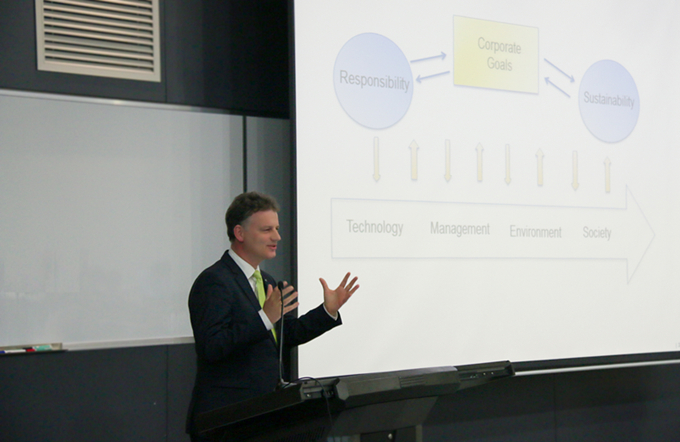
Tomas Bayon, dean of the German Graduate School of Management and Law, shares his insights.
Tomas Bayon, dean of the German Graduate School of Management and Law, and Rene Schmidpeter, chair of the International Conference on CSR, Sustainability, Ethics and Governance, delivered keynote speeches. Bayon spoke on a combined theory-practice education model for German students that offer them internships for learning business practices that enhance enterprises’ CSR awareness.
Rene Schmidpeter, chair of International Conference on CSR, Sustainability, Ethics and Governance, delivers the keynote speech.
Rene Schmidpeter focused on how to educate a new generation of business leaders to correct the view that sustainability contradicts profitability, because research has shown that firms that integrate social and environmental thinking are more profitable in the long run. “We should not just teach students about profit maximization but need to put CSR topics into business schools’ curriculum,” Schmidpeter said, referring to CSR and green innovation as a brake to ensure the safety of economic growth. Focusing on the importance of ensuring sufficient investment for nurturing green startups, Qianhai Silicon Valley International Open Platform CEO, Ma Yaoguang interpreted CSR and green innovation in a more entrepreneurial perspective. “If a startup doesn’t adopt a green approach at the very beginning, how can we expect it grow into a green enterprise in the future?” asked Ma, whose keynote speech focused on the importance of ensuring sufficient investment for nurturing green startups.
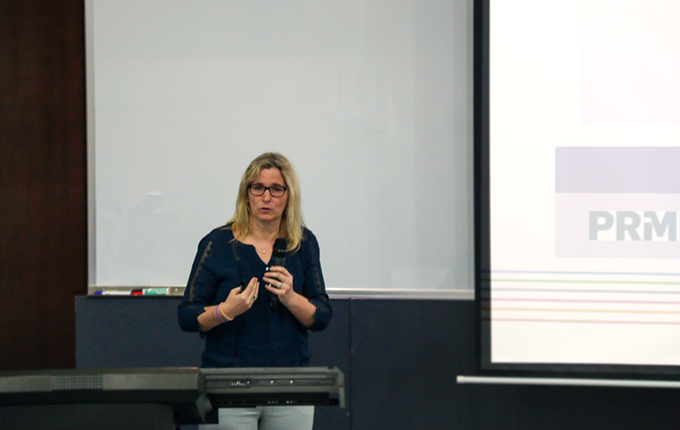
Elisabeth Frohlich, president of Cologne Business School, gives remarks about CSR education.
During the academic session, scholars exchanged views with entrepreneurs from leading companies. Representatives from academia included Elisabeth Frohlich, president of Cologne Business School; Ren Zhiqing, president of Heavengaia International Education Group; Zhou Guoyin, senior researcher of Social Responsibility Department of Huawei; and Dirk Thomas, former vice president of IBM and guest lecturer at PKU School of Transnational Law, among others. Their discussions focused on innovation and entrepreneurship, school-enterprise cooperation, and CSR in the international arena, among others. Frohlich shared Cologne Business School’s efforts in CSR education to train responsible future business leaders. Zhou presented a corporate view on sustainability and spoke about Huawei's belief that “green management” is the key to a successful green business strategy.
Haifeng Huang, PHBS assistant dean and special commissioner of the Ministry of Land and Resources, delivers the closing remarks, talking about the importance of CSR and green innovation for business schools.
The round table session provided an outlet for discussions on the role of business and law in a green economy and effective responses to ecological challenges through CSR. Discussants included Li Luoya, vice chairman and secretary general of Alashan Ecological Foundation; Zhang Gengyun, vice President of BGI Agriculture Group; and Constanze Wagenblast, coordinator of international programs at German Graduate School of Management and Law.
Participants visit Qianhai Shenzhen-Hong Kong Youth Innovation and Entrepreneur Hub
“I must say that some of the lecturers have influenced my views on business,” commented Czech exchange student Filip Jurena. “I have realized that making business green and socially responsible not only brings a good feeling for the businessman and helps society, but in many cases also helps the business earn more money.”
Said T. Khamrin, a management student, “I did really enjoy the trip to Qianhai to know the new trends of world and how we can apply CRS concepts in a pragmatic way.”
For Mahesh Reddy, a full-time student in economics, this forum was special because the topics in the forum were so closely related to his field of interest. “I loved it, especially the talk by Mr. Ma on entrepreneurship and sustainable technology.”
The group photo of all participants
By Annie Jin
Edited by Priscilla Young






